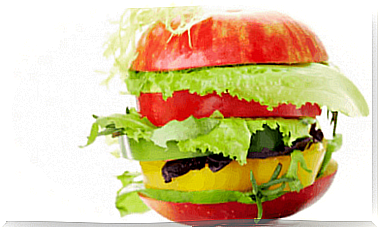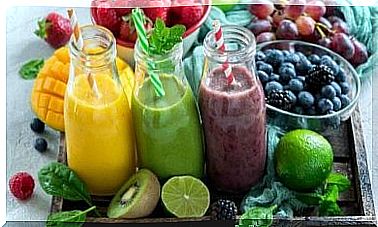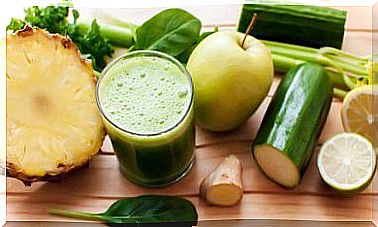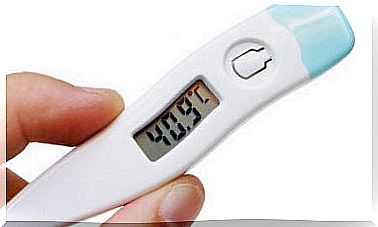5 Essential Nutrients For A Healthy Diet
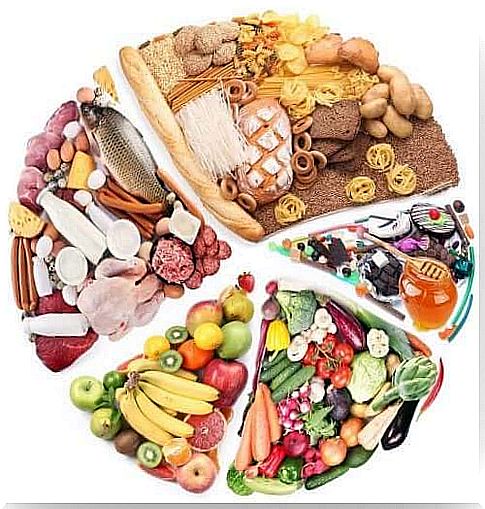
People need a wide variety of nutrients to have energy and stay healthy. Therefore, when composing a healthy diet, you should make sure that it contains the essential nutrients such as vitamins and minerals that your body needs.
So in this article we will talk about the importance of different nutrients that you should include in your diet and we will tell you in which foods you can find them. So don’t miss it!
Essential Nutrients for a Healthy Diet
To be healthy, according to data from the Spanish Nutrition Foundation (Fundación Española de Nutrición), you need to consume about 50 nutrients, which are grouped as follows:
- Carbohydrates
- Protein
- fats
- Minerals
- Vitamins
All of these nutrients are found in the foods you eat. It is therefore equally important to combine them in the right way to maintain your bodily functions and the energy you need for your daily life.
1. Essential Nutrients: Carbohydrates
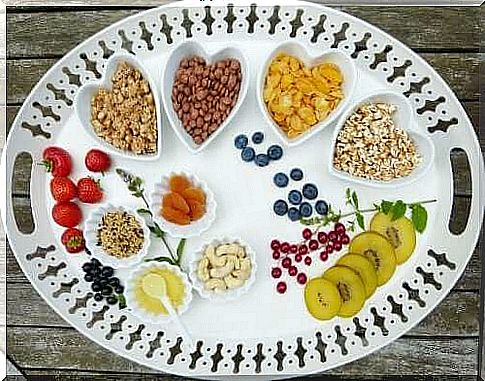
Carbohydrates are essential nutrients for a healthy diet. Make sure to include carbohydrates in your diet as they provide the energy your body needs.
Carbohydrates are divided into monosaccharides, disaccharides and polysaccharides. Their main function is to provide your body with energy. They are also necessary for the metabolism of your nerve centers which use glucose as a form of energy.
Add carbohydrates to your healthy diet to get about 60% of your calories. As a regular part of your healthy meals, choose:
- brown rice
- Quinoa
- Oats
- Whole-weat pasta
- Fruit
Indigestible carbohydrates are called dietary fiber, a fundamental substance to regulate your digestive system, prevent constipation and help prevent diseases such as colon neoplasm and diabetes. You should consume between 20 and 40 grams of this daily.
2. Protein
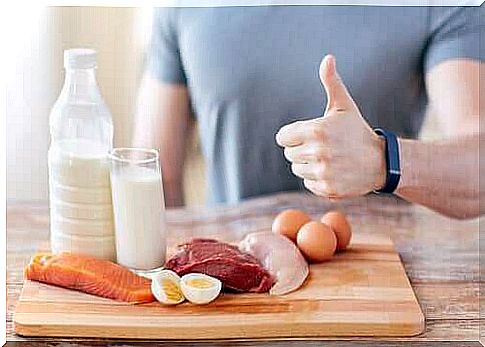
Your body gets 8 essential amino acids from eating proteins with a high biological value. Protein is needed to make and repair your body’s cells, as they are mostly made up of protein. Between 10 and 15% of your daily calories should come from protein.
It is important to emphasize that proteins are made up of amino acid chains, eight of which you must get from your food, because the body cannot make them.
3. Nutrients for a Healthy Diet: Lipids
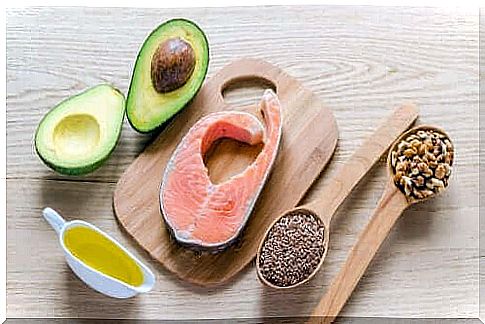
Fats are necessary for your body to function properly. Healthy lipids contain linoleic and linolenic acids, two essential nutrients for your nervous and cardiovascular system. They also contain vitamins A, D, E and K and they help to absorb them.
However, due to their possible relationship with cardiovascular disease and cancer, they should provide no more than 30% of your total energy for a healthy diet. In addition, you should always choose essential fatty acids. We recommend that you also include extra virgin olive oil, avocado and seafood in your diet.
4. Minerals
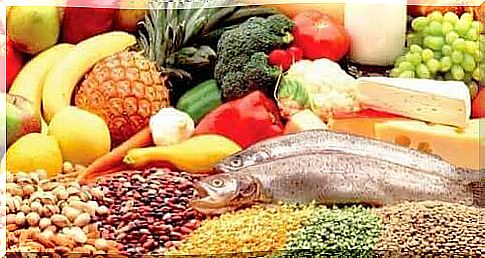
Aim for a balance in your diet to get all the minerals your body needs. Minerals are important because they form the structure of many tissues, such as bones. In addition , they are part of your hormones and enzymes. We mention the most important:
- Calcium: This is fundamental for keeping your bones healthy, especially during growth and pregnancy. You can find it in dairy products like milk and cheese, as well as almonds and other nuts.
- Iron: An iron deficiency can cause anemia. It’s important, because it’s part of the hemoglobin of blood that carries oxygen throughout your body. Get it by eating meat, dried fruits, beans, and vegetables like spinach and broccoli.
- Iodine plays an important role in thyroid functions. Important sources of iodine are, for example, blueberries, Himalayan salt, natural yogurt and cod.
- Magnesium helps metabolize carbohydrates, forms intracellular enzymes and promotes neuromuscular activity. You can find it in spinach, broccoli, avocado and salmon, among other things.
- Zinc is an integral part of several enzymes. To eat it, add fish, oysters and shellfish, meat, dried fruit, beans, cucumber, and plantains to your weekly meals.
- Potassium is important to prevent insomnia, arrhythmias and muscle weakness. You can find it in meat, fish, vegetables and fruits.
- Sodium is mainly needed for the transmission of nerve impulses. However, this is a mineral that we often get too much of. We recommend moderate consumption (2 grams per day). You can get it from eggs, liver, dried fruit, and table salt.
5. Vitamins
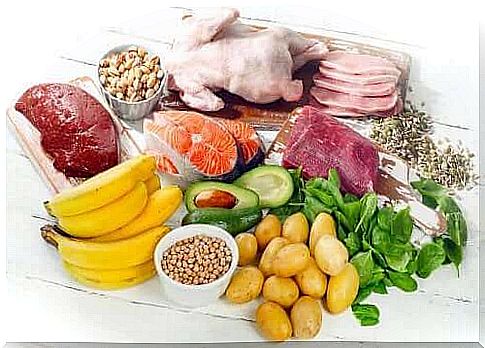
You will find that the best way to get your vitamins is variety. Your body needs vitamins to convert food into energy. They play an important role in the regulation of metabolic enzymes. We introduce the main ones here:
- Folic acid is a vitamin B complex that is part of DNA synthesis. It is therefore important to eat it before and during pregnancy. It is mainly found in leafy vegetables, beans and liver.
- Thiamine, or vitamin B1, is essential for development and growth. You can get it from beans, liver, eggs, and whole grains.
- Riboflavin or vitamin B2: it promotes, among other things, the production of red blood cells and antibodies. Milk, cheese, egg whites and dried fruit are sources of this vitamin.
- Cyanocobalamin, or vitamin B12, stimulates the cells responsible for bone formation and also helps metabolize fats. You can find it in meat, oily fish and eggs, among other things.
- Vitamin C is a cellular protector and antioxidant. You can get it from citrus fruits, gooseberries, kiwi, strawberries, vegetables, liver and kidneys.
- Tocopherol or Vitamin E: This vitamin is an antioxidant and works to protect cell membranes from free radicals. Olive oil, grains, dried fruits and vegetables are good sources of this nutrient.
In general, these are just some of the essential nutrients for a healthy diet, but they are not all of them. As we mentioned at the beginning of the article, a balanced diet contains 50 nutrients. Talk to a nutritionist to create a diet plan based on your nutritional needs.
